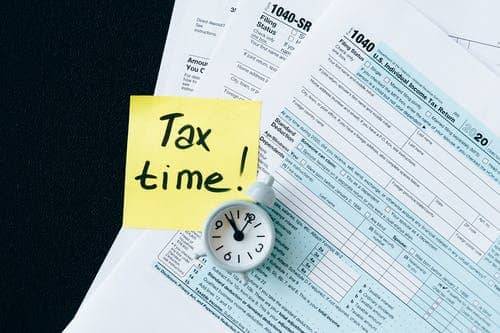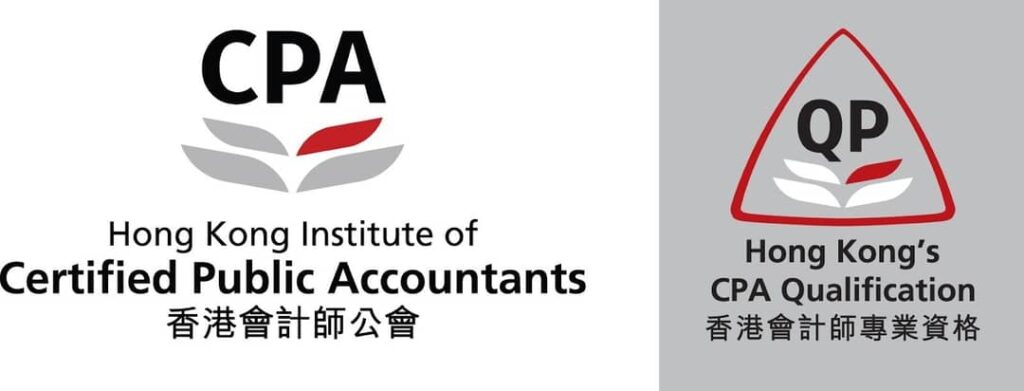Norman Ralph Augustine, a renowned aerospace businessman once said, “Two-thirds of the Earth’s surface is covered with water. The other third is covered with auditors from headquarters.
This quote emphasizes the undeniable importance of a company audit in Hong Kong, and how companies embraced external audits in response to the expansion of regulatory requirements.
Read on to learn more about the new business owner’s guide to doing audits for companies in Hong Kong.
Table of Contents
The audit for Hong Kong companies
Are you planning to incorporate a business in Hong Kong?
If so, it is important to get a grasp of the statutory audit and tax requirements to avoid the risks of additional interest and penalties.

Statutory audit refers to the examination of a business’s financial statements, including its income statement, balance sheet, statement of changes in equity, and cash flow.
The audit of financial statements is performed by an independent third-party auditor to comply with the provisions set up by the Hong Kong Companies Ordinance and the Inland Revenue Ordinance.
The independent third-party auditor is licensed by the Hong Kong Institute of Certified Public Accountants (HKICPA), which is the sole entity responsible for certifying CPAs in Hong Kong.
You can read more on what a company audit in Hong Kong is here.
Tax compliance and audit of financial statements?
A company in Hong Kong is responsible for its financial reporting. The company’s directors shall prepare financial statements following the financial reporting requirements and Hong Kong standards.

The primary purpose of an audit is for a third-party auditor to officially review and verify accounts presented in the financial statements. The goal is to form an opinion as to the fairness and accuracy of business transactions that the management claims to represent.
The audit of financial statements by a company auditor helps to improve the confidence of users, such as creditors, government agencies, suppliers, and investors towards the company’s financial statements.
In addition, it ensures compliance with the Inland Revenue and the information submitted to this office are accurate and presented without bias
The process of auditing for a company
After receipt of the financial statements and supporting documents, the auditor reviews the nature of business, transactions, and events affecting the business operation.
The auditor identifies and critically examines transactions and performs tests to determine possible errors and misstatements that can affect the accuracy of the financial statements
The auditor makes an opinion and issues an audit report as to the accuracy and fairness of information presented in the financial statements.
The steps presented above will give you an overview of the audit process that is typically performed by an independent auditor.
If you are looking to gain more details about the auditing process, one of the team members of ReachTop KSHK CPA can help you.
What is an audit report?
After completing an audit in Hong Kong, the external auditor will write an Audit Report, which must be signed by the directors and the auditor.
Note that private companies, including the companies limited by guarantee, may prepare simplified accounts.
A signed audit report is necessary for the filing of the profits tax return as the report serves as a basis for the tax computation of the company’s tax liabilities.
Moreover, it also provides credibility to the truthfulness of the financial statements audited.
What should be included in an audit report?
The IRD will use the audit report to ascertain the business’s tax liability for the year under audit.
The following elements are to be included in the audit report:
- a letter from the auditor which states their opinion as to whether the financial statements are prepared in compliance with the Hong Kong accounting standards.
- the report includes the audited financial statements, other disclosures and computation of tax to be submitted to the Inland Revenue Department (IRD)
Note that there are instances when the IRD will challenge the information presented in the tax computation form and the financial statements.
It helps to hire an auditor who will present a thoroughly completed audit report to lessen the possibility of your tax filings being questioned.
Audit report requirements as per Hong Kong audit standards
The Hong Kong Companies Ordinance compels incorporated companies in HK to present financial statements that depict a true and fair picture of their business operations.
Based on the provisions of the Ordinance, incorporated companies in HK have to submit their financial reports for an audit by a Certified Public Accountant.
What documents are needed for an audit?
It is important to collaborate closely with your auditor, so you can supply the accounting records and supporting documents to complete the audit process.
The examples of accounting documents may be required in an audit :
- your financial statements
- ledgers of your business transactions
- bank statements
- expense receipts
- sales invoices
- purchase invoices
- documents from the insurance company
- minutes of the annual general meeting
- other financial accounts information
- contracts and other relevant documents
Why hire CPAs for your company audits?
Certified public accountants have licensed accounting professionals, who offer audits and attestation services to the public.
In general, independent CPAs write auditor’s reports after conducting a review of the client’s financial statements.

Before issuing an auditor’s reports, it is the auditor’s responsibility to observe diligence in examining the documents and accounts under audit.
For example, auditors have to examine whether amounts in various accounts in the balance sheet are true and correct and are presented without internal bias.
It is after performing a quality audit and reviewing the financial statements and supporting documents that the auditor can issue financial reports.
Moreover, the CPA sends the tax computation together with the returned signed audit reports and other relevant audit documents to the Internal Revenue Department.
The audit report, tax computation, and tax filing with the IRD
Expect the Inland Revenue Department to issue your first tax return form for your company 18 months after its incorporation. After filling up the form, your next step is to submit it to the IRD together with the audit report and tax computation.
Note that as per the IRD requirements, the office will only accept original copies of the audit reports signed by the company directors. Moreover, as a prudent business owner, you have to ensure compliance with the regulatory requirements of the IRD.
The Hong Kong Standards in Auditing
The Hong Kong Institute of Certified Public Accountants outlines the auditing and assurance standards associated with quality control, assurance, auditing, and other related services.

Auditing and assurance in HK describe the key concepts that guide CPA practitioners as they offer services to offshore and Hong Kong incorporated companies.
FAQs
What is an audit opinion?
An audit opinion refers to the auditor’s conclusion as to whether the information presented in the financial statement under audit is free from material misstatement that may have occurred as a result of errors or fraud.
What are the types of audit opinions?
Unqualified: This is known in the auditing field as a clean opinion, where the company auditor obtained appropriate and sufficient evidence as a basis for this type of opinion.
Qualified: An audit merits a qualified opinion in instances where after gathering adequate audit data from company documents, the auditor finds material but not pervasive deviations from HK’s local accounting standards and principles.
The disclaimer: The auditor may disclaim an opinion when there is a lack of sufficient appropriate audit evidence to base an opinion and concludes that these unsupported events and transactions may have a material and pervasive impact on the financial statements.
Adverse opinion: An adverse opinion is appropriate when, after examining the relevant accounting documents, the auditor obtains sufficient evidence to conclude that material misstatements exist and these have a pervasive effect on the financial statements
What is to be included in the notes to the financial statements?
Some of the elements to be included in the notes to the financial statements of Hong Kong Companies are the assumptions and other critical information required to fully understand the documents.
Why aim for an unqualified opinion for the signed audit reports?
During the initial audit, your auditor may find reasons to issue an opinion other than an unqualified opinion. This may raise questions from the tax authorities when you file for your profits tax return.
In this way, you can supply relevant documents such as bank statements and merchant account statements to help the auditor gain a true and fair view of your company’s accounts that will justify an unqualified opinion.
Who can perform financial statements audits in HK?
Only an auditor licensed as a Certified Public Accountant by the HKCPA can perform an audit in Hong Kong. The certification validates the auditor’s competency in the accounting and auditing standards.
In addition, the audit process gives credibility to the financial statements, which is helpful in establishing a stronger business presence.
You can check the important things to consider when choosing an auditor in Hong Kong in this article.
Can I do my accounting and audit work?
You can certainly do the accounting and work on your financial accounts. Nonetheless, you are in a better position with the support of a professional accountant to guide you in presenting your accounting reports and other tax filings requirements.
Moreover, as per the Companies Ordinance you are required to seek the services of a Certified Public Accountant in Hong Kong, who will perform audits and issue audit reports.
You will need the help of an auditor when submitting a completed profits tax return to the IRD.
Your next steps
We, at ReachTop KSHK, offer quality and efficient auditing and tax consultation services for businesses in Hong Kong.
See our auditing approach. Let’s talk.

